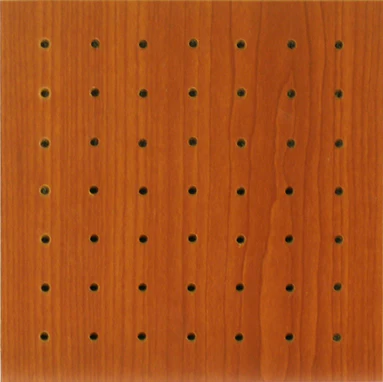In recent years, timber wall panels have become a popular choice in both residential and commercial interior design. They are not only valued for their aesthetic appeal but also for their functional benefits, particularly in enhancing the acoustic quality of indoor spaces. In environments like homes and offices, where noise control is crucial, timber wall panels offer a natural and effective solution. This article explores the acoustic benefits of timber wall panels, how they contribute to soundproofing, and why they are an excellent choice for creating quieter, more comfortable living and working environments.
Why Soundproofing Matters
Before diving into the specifics of timber wall panels, it is important to understand why soundproofing is essential in certain spaces. Whether it’s a bustling office or a busy home, unwanted noise can be disruptive and impact well-being, productivity, and comfort. In offices, excessive noise can reduce focus and concentration, leading to lower productivity levels. At home, poor acoustics can interfere with relaxation, making it hard to unwind.
By incorporating materials that help control sound, like timber wall panels, these challenges can be mitigated. Timber, being a natural material, has inherent sound-absorbing qualities that can improve the acoustic environment, reducing the transmission of unwanted noise.
How Timber Wall Panels Enhance Soundproofing
Timber wall panels contribute to soundproofing in several ways. Their structure, density, and installation methods all play a role in how effectively they manage sound.
1. Natural Sound Absorption
Wood is a porous material, and its cellular structure allows it to absorb sound waves rather than reflect them. When sound waves hit a solid surface like concrete or glass, they bounce back into the room, creating echoes and amplifying noise. In contrast, timber wall panels help to absorb these sound waves, reducing echoes and creating a quieter, more serene environment. This makes them particularly useful in spaces with hard surfaces where sound tends to reverberate, such as large living rooms, open-plan offices, or conference rooms.
2. Reduction of Sound Transmission
Beyond absorbing sound, timber wall panels can also reduce sound transmission between rooms. Sound transmission occurs when noise from one area passes through walls to another space, which can be a significant issue in homes with thin walls or offices with partitioned workspaces. The density of timber can act as a barrier, dampening sound vibrations and minimizing the amount of noise that travels from one room to the next. For even better results, thicker panels or multiple layers of timber can be used to further enhance sound insulation.
3. Timber’s Acoustic Performance vs. Other Materials
Compared to other common wall materials, such as drywall or plasterboard, timber wall panels often offer superior acoustic performance. While drywall is a cost-effective option for basic soundproofing, it lacks the natural sound-absorbing properties that wood possesses. Timber wall panels not only help absorb sound but also provide thermal insulation, making them a dual-purpose solution for improving both the sound quality and energy efficiency of a space.
Additionally, unlike some synthetic acoustic treatments, timber wall panels maintain a natural, organic look that can complement a wide variety of interior design styles. This allows you to improve acoustics without compromising on aesthetics.
Best Timber Options for Soundproofing
Not all wood types offer the same level of soundproofing. When choosing timber wall panels for acoustic purposes, consider the following options:
1. Hardwood vs. Softwood
Hardwood timber panels, such as oak, walnut, and maple, are generally denser than softwood varieties like pine or cedar. This density contributes to better sound insulation because it makes it harder for sound waves to pass through. However, both hardwood and softwood have excellent sound-absorbing qualities, so the choice often comes down to the specific needs of the space and aesthetic preferences.
2. Reclaimed Timber
Reclaimed timber is a sustainable option that not only contributes to eco-friendly design but also has excellent acoustic properties. Since reclaimed wood has been exposed to varying conditions over time, it often has a denser structure, which can enhance soundproofing. Moreover, its unique texture and appearance can add character to a room.
3. Engineered Wood Panels
Engineered wood, such as plywood or medium-density fiberboard (MDF), is another popular choice for acoustic wall panels. These materials are manufactured to be durable and provide consistent soundproofing. Engineered wood panels are also more affordable than solid timber, making them an attractive option for larger installations.
Ideal Locations for Timber Wall Panels
panels can be installed in various settings to improve acoustics:
- Home Theaters or Media Rooms: Timber wall panels are excellent for soundproofing home theaters, where controlling sound quality is paramount. They help minimize noise from outside the room and prevent sound from leaking into other parts of the house.
- Office Meeting Rooms: In office environments, soundproofing meeting rooms or conference areas is essential to maintaining privacy and reducing distractions. Timber panels can absorb background noise, creating a more conducive environment for discussions.
- Bedrooms and Living Areas: In homes, panels in bedrooms or living spaces can create a quieter, more peaceful atmosphere. This is particularly beneficial in apartments or shared living spaces where noise from neighboring rooms can be a concern.
Aesthetic and Functional Benefits
In addition to their acoustic advantages, panels provide a range of aesthetic benefits. They introduce warmth and texture to interiors, complementing both traditional and contemporary design styles. Whether you prefer a rustic, natural look or sleek, modern finishes, timber panels can be customized to fit your design vision while improving the overall acoustic environment.
Read also this article: Prologue to Printed Examples in Freezer Paper
Conclusion
Timber wall panels offer a natural and effective solution for improving soundproofing in homes and offices. Their inherent sound-absorbing properties, combined with their ability to reduce sound transmission between rooms, make them an ideal choice for enhancing the acoustic quality of indoor spaces. Whether you’re looking to create a quiet home environment or optimize the sound quality in a bustling office, timber wall panels provide both aesthetic and functional benefits. By choosing the right type of timber and strategically installing panels in key areas, you can significantly improve the comfort and tranquility of your space.









